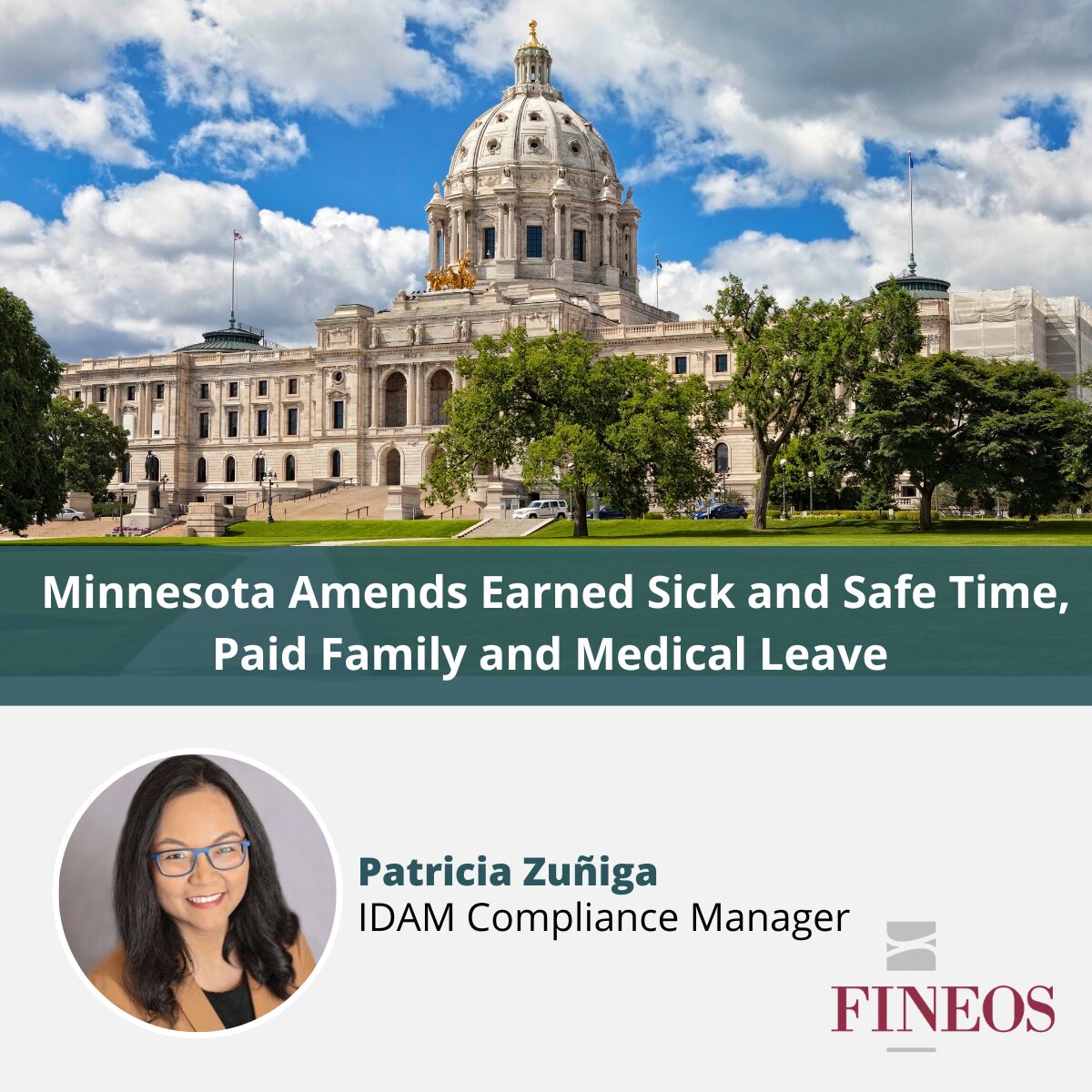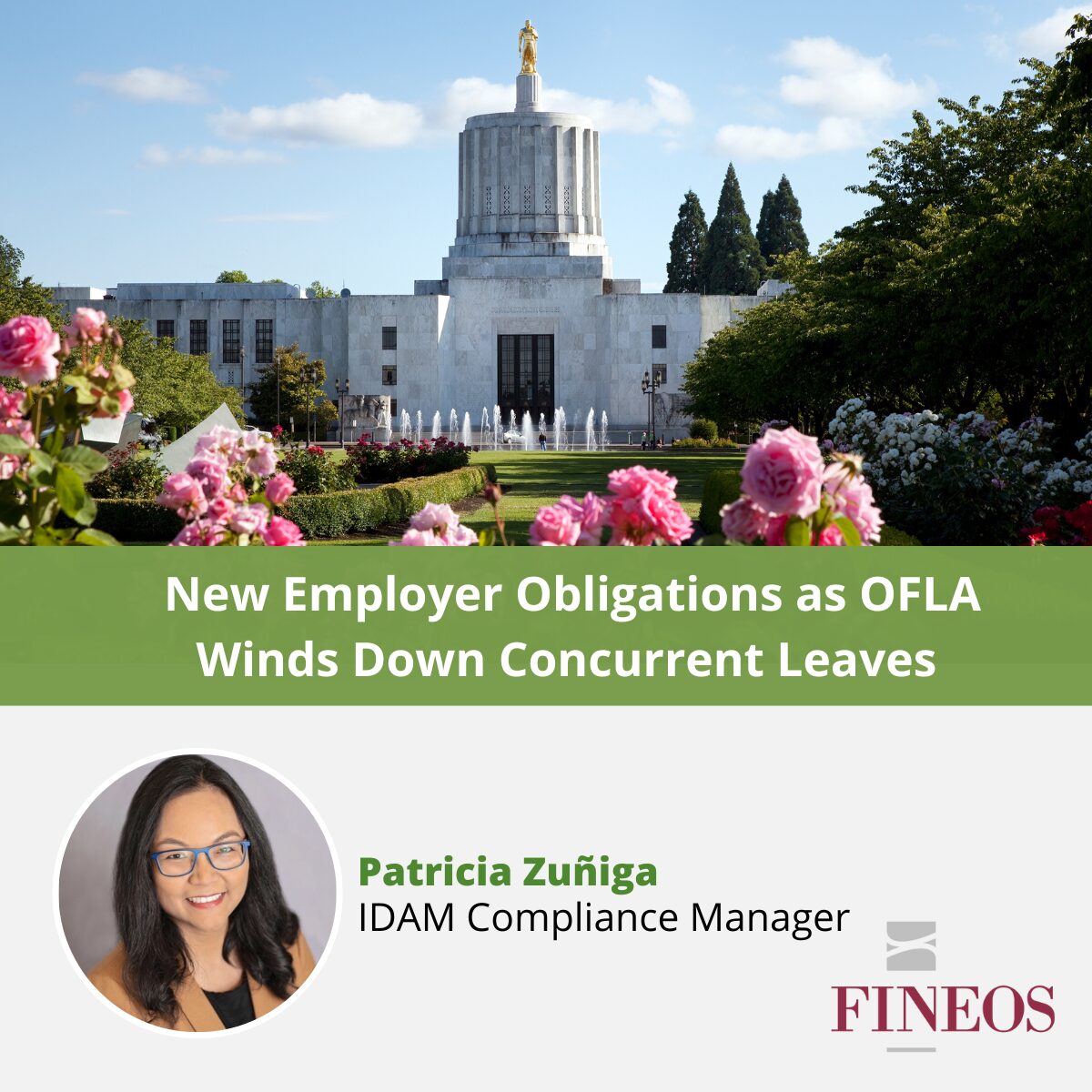There’s no such thing as a summer break for absence management professionals, who continue to monitor state legislatures as well as regulatory agencies providing guidance for significant new legislative and regulatory activity. Find out if you’re affected by any of these late-season developments.
Oregon Family Leave Act and Sick Leave Temporary Regulations
When: Adopted August 23
What: The Oregon Bureau of Labor and Industries (BOLI) adopted temporary amendments to the Oregon Family Leave Act (OFLA) regulations to reflect changes introduced by SB 999, which became effective on Sept. 3. Among others, the regulations formalize the alignment of the list of covered family relationships (including an affinity relationship), which means that an employee can take a job-protected absence under sick leave, OFLA and PFML to care for the same family member. The temporary rules are effective until Feb. 29, 2024; BOLI is expected to conduct full, formal rulemaking to adopt these as final regulations.
Oregon Guidance on OFLA and Paid Leave Oregon
When: Issued August 2023
What: Paid Leave Oregon and BOLI created a fact sheet to answer frequently asked questions about how PFML and OFLA run concurrently. Among others, the FAQ document explains that an employee’s OFLA and/or FMLA leave taken before the start of the Oregon PFML program on Sept. 3 will not reduce the total amount of leave available during the paid leave benefit year.
Delaware PFML Amendment
When: SB 178 is effective immediately; comparable private plan applications begin Oct. 1
What: Existing law allows the state Department of Labor’s newly established Division of Paid Leave to approve private benefits in existence on May 10, 2022, as comparable private plans under the Delaware PFML program. Employers can apply to “grandfather in” their employer-provided paid time off (PTO) benefits beginning Oct. 1, and the Division will determine if this is comparable to the public plan according to the standards recently established by the regulations. This new law revises the appeal process for the denial of applications for comparable private plans so that the hearing is conducted by the Labor department instead of the Family and Medical Leave Insurance Appeal Board, which is intended to conduct hearings on denials of individual benefits claims.
Connecticut Paid Sick Leave Amendment
When: Paid sick leave provisions of SB 2 are effective Oct. 1
What: Connecticut’s paid sick leave law will include more covered leave reasons for service workers, which include social workers, librarians, home health aides, cooks, bartenders, fast food and counter workers,
waiters and waitresses, dishwashers, retail salespersons, and other similar jobs as specified by the new law. (It does not include day or temporary workers.) The additional leave reasons now include a mental health wellness day, and to take leave as the parent or guardian of a child who is a victim of family violence or sexual assault.
Nevada Domestic Violence and Sexual Assault Leave Amendment
When: AB 163 is effective Jan. 1, 2024
What: Existing law requires employers to provide their employees who have been employed by their employer for at least 90 days with 160 hours of leave in a 12-month period to use if they or their family or household member is a victim of an act of domestic violence. This amends the existing law to include an act of sexual assault under the covered reasons for leave. If both are applicable, the entitlement will run concurrently with federal Family and Medical Leave Act (FMLA). Employers must post a notice, to be prepared by the Nevada Labor Commissioner, which clearly sets forth the right to the benefits created by this section.
Colorado PFML Regulations
When: Rulemaking conducted May to August
What: The Colorado Family and Medical Leave Insurance (FAMLI) Division adopted regulations on local government participation, premiums, coordination of benefits and reimbursement of advanced payments, job protection, investigations, determinations, and appeals, and program integrity. One of the significant amendments was to align FAMLI’s definition of “wages” with the Unemployment Insurance Division’s definition of “wages,” as well as to establish a fine up to $50.00 per individual whose premiums were not paid on time.
FINEOS can help with your state PFML and other leave
FINEOS will be ready to administer these new and amended laws, regulations, and guidance. Using modern insurance technology solutions like the FINEOS Platform can help companies remain compliant and competitive when leave legislation is revised and new products are authorized by governing jurisdictions. Learn how a modern, integrated disability and absence management (IDAM) solution can help your organization adapt to this rapidly evolving market and remain in compliance.


